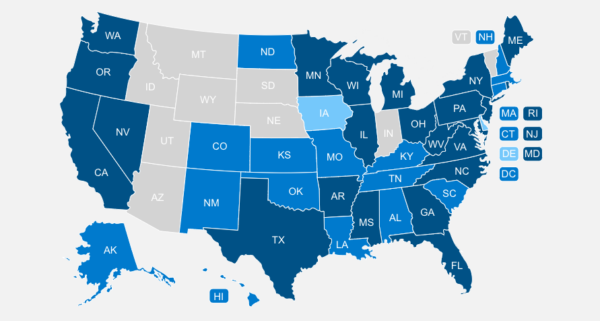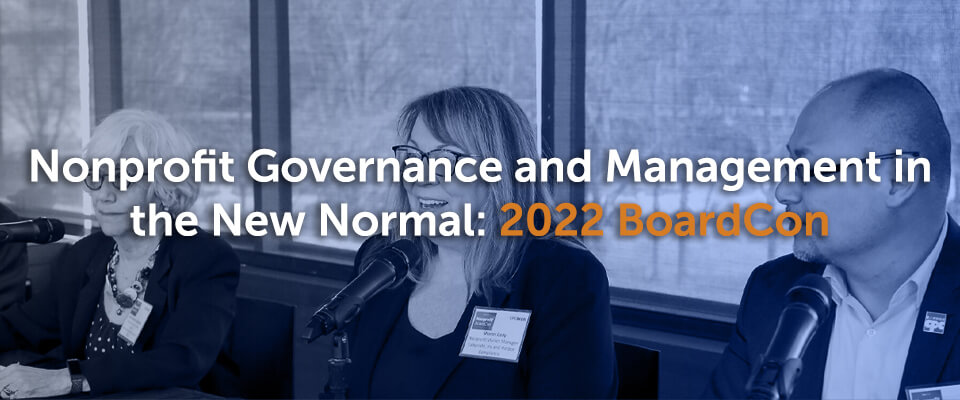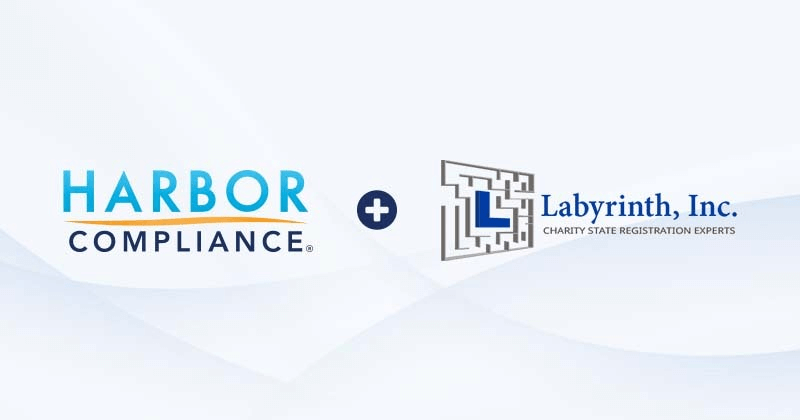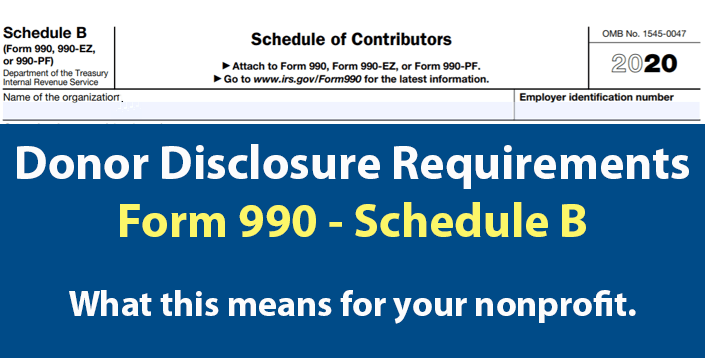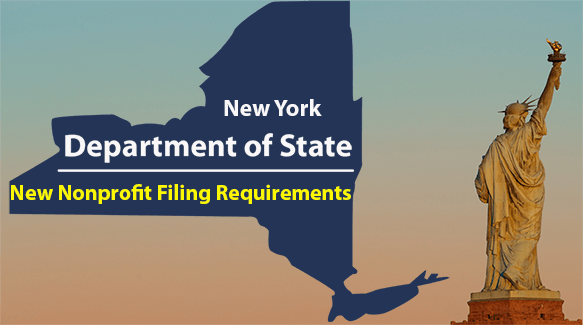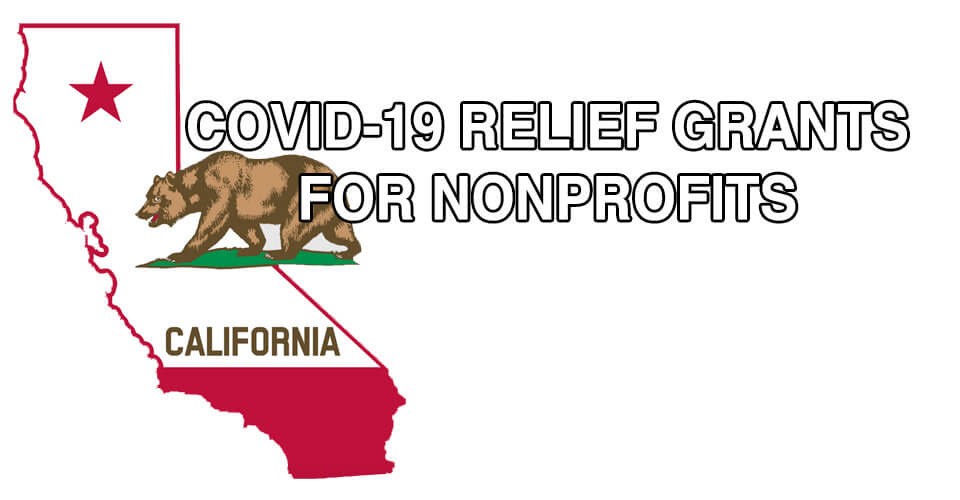
Bookkeeping For Charitable Organizations
February 20, 2020
Mandatory Electronic Filing of IRS Form 990
March 16, 2020The Nonprofit Compliance Checklist: Must Know Essentials
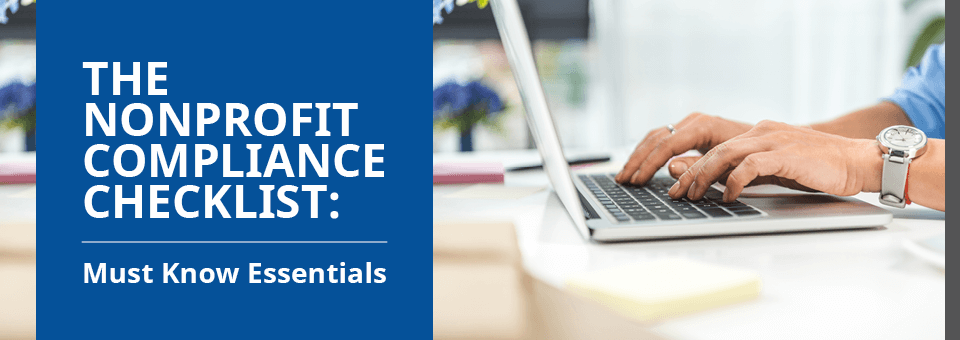
The Nonprofit Compliance Checklist: Must Know Essentials
Nonprofits need to maintain legal compliance with all federal, state, and local regulations to continue operating lawfully. Nonprofit compliance laws vary by jurisdiction and are sometimes complex or even unclear.
This is especially true in today’s digital landscape. With the prevalence of online fundraising, potential donors could come from anywhere, meaning a click to donate on your website triggers compliance requirements in the state where that donor resides. Much of the current regulatory framework was enacted for traditional fundraising and so does not account for online fundraising. This lack of clarity has further complicated compliance even for the most experienced nonprofit personnel.
However, compliance laws and regulations exist for a reason: they help promote transparency and accountability, improving public trust in all nonprofit organizations, including yours.
To help your nonprofit meet common compliance standards, our team at Labyrinth has compiled a comprehensive checklist your nonprofit can use to ensure you remain in good standing and can operate efficiently. We’ve divided our list into six essential compliance categories, allowing nonprofits to more easily find the information most relevant to their needs:
- Corporate Requirements
- Fundraising Requirements
- Operational Requirements
- Accounting Requirements
- Proper Classification of Employees
- Record-Keeping Requirements
If your nonprofit needs additional help meeting your compliance obligations, do not hesitate to reach out to our nonprofit compliance specialists The essentials outlined in this guide will give you a solid starting point for understanding the tasks you can manage in-house, and when outsourcing is necessary.
Nonprofit Compliance Category 1: Corporate Requirements
Nonprofits generally follow the same incorporation process as most organizations with one notable exception: mission statements. After choosing a mission statement that accurately encompasses your nonprofit’s activities, your nonprofit will need to take the following actions to maintain its incorporated status:
- Wherever required, register and renew your nonprofit as a legal corporate entity. Charitable corporations must file annually in the state that they are incorporated in, as well as in states where they have offices or employees. Additionally, you must also file in North Dakota and the District of Columbia if you are registered to fundraise there. These filings will be submitted to either your state’s Attorney General or Secretary of State, so be sure to research your state’s specific process.
- File corporate annual reports in jurisdictions where you are registered to conduct business.
- Designate official registered agents for your nonprofit as needed. States require an individual or company in the state to accept service of process and act as a registered agent if an organization is registered to do business in the state. It is generally best to hire a commercial registered agent for the most consistent long-term support.
- Report address changes. If you move offices, you must update the state with your new address to continue receiving important mailed documents that could impact your operations. You must also report address changes to the IRS to maintain tax-exempt status.
Filing to incorporate usually requires paying a fee. Costs for both your initial incorporation and renewals will vary widely depending on your location. For instance, some states allow organizations to renew their status for free while others may charge up to $70.
No matter the cost, your nonprofit must comply with corporate regulations in order to remain in good standing with your state. Failure to do so may result in your nonprofit being dissolved as a legal entity, which can have serious consequences for your continued operations, up to and including loss of liability protections for your leadership.
Nonprofit Compliance Category 2: Fundraising Requirements
Fundraising laws and regulations allow your nonprofit to solicit donations from supporters and collect proceeds without paying taxes on them. Ensure your nonprofit follows all federal fundraising regulations, and research your state’s unique requirements as fundraising requirements can vary based on your location.
- If you have not done so yet, make sure that your organization is registered to solicit in all states from whose residents you will be asking for donations. Nearly every state has a unique charitable solicitation registration process, so be sure to research all states where you will be soliciting carefully.
- Make sure to include written disclosure statements on all written solicitations. Not every state requires written disclosure statements, but doing so will help maintain transparency between your nonprofit and donors, regardless of legal necessity.
- Produce an annual report illustrating revenues and expenses, program outcomes, what your organization plans to accomplish in the upcoming year, and an acknowledgment of contributors.
Additionally, be sure to review and follow all solicitation laws and regulations. Keep in mind that most laws dictating how nonprofits can solicit donations will apply based on where the people you are soliciting from are located, not where your nonprofit is based. For example, this means that if your nonprofit is based in the U.S. but has supporters in the E.U., you will also need to be aware of E.U. solicitation laws.
Nonprofit Compliance Category 3: Operational Requirements
All organizations will need to draft, approve, and adhere to internal operational procedure guidelines, and nonprofits are no exception. A copy of your nonprofit’s bylaws is necessary for many essential federal and state registration processes, including applications for 501(c)(3) status and donation solicitation registration.
- You should have a current copy of your organization’s bylaws. Adhere to your company bylaws to avoid any potential lawsuits.
- Make sure directors, committee members, and officers of your nonprofit organization have been elected in accordance with your bylaws.
- Nonprofit board members are fiduciaries of your organization. That means that they have certain fiduciary duties. It is important that they understand and adhere to these duties.
- Conduct regular board meetings. Make sure that you carefully plan board meetings that are mission-focused. Use the meeting to make strategic decisions and plans. Board meetings can provide oversight into how well your charitable organization is fulfilling its mission and overseeing management. Board meetings can also give you an opportunity to strategize for the future and review compliance statuses. Lastly, take board meeting minutes and distribute them within 24 hours, to keep participants focused on progressing your organization’s goals.
- Beware of conflicts of interest by having a conflict of interest policy in place. Make sure that all board members understand and sign. For example, a potential conflict of interest could arise if paid officers are not allowed to be directors.
- The Johnson Amendment to the tax code of 1954 prohibits nonprofit organizations from endorsing candidates, contributing to political campaigns or participating in any activity that may be deemed political. However, nonprofits are allowed to engage in nonpartisan election-related activities, such as voter education, registration and get-out-the-vote efforts.
It might be helpful to think of your bylaws as a formal agreement between your nonprofit’s personnel. Everyone at your nonprofit is expected to follow the guidelines as written, and the bylaws can and should be referenced on a regular basis. Additionally, you should also be sure to compare your operational guidelines as laid out in your articles of incorporation and your bylaws to ensure that they remain consistent with each other.
Nonprofit Compliance Category 4: Accounting Requirements
Accounting regulations help nonprofits maintain financial transparency, building trust between nonprofits and their donors. Additionally, following necessary accounting practices can also help your nonprofit stay organized and prevent a last-minute scramble during tax season.
- Ensure that your tax-exempt status is up-to-date. You can get in touch with the IRS to obtain an IRS letter of determination, proving your tax-exempt status.
- File IRS Form 990 series (990-N, 990-EZ, 990 or 990-PF) returns or a time extension request. By law, your tax-exempt status could be revoked if you fail to file your Form 990 returns for three consecutive years.
- Make sure you document all unrelated income activities and pay all unrelated income taxes, or all taxes not related to your 501(c)(3) status. Although there are certain exceptions, such as work and activities done by volunteers, unrelated income over $1,000 is generally subject to taxation.
- If your nonprofit organization receives grants from the federal or state government, your nonprofit must be prepared to provide certification of its granting agency. In addition, make sure your organization properly documents how these funds were used, what was accomplished and how much was left. Make sure to study state specific reporting requirements.
- Make sure your books are accurate and up to date. Bookkeeping helps you analyze your organization’s performance. Inaccurate books or bookkeeping done by an unqualified bookkeeper will defeat the purpose of keeping records and can lead to financial inconsistencies. Your books should contain expenses, revenue, bank statements, etc.
Your nonprofit will need both a designated bookkeeper and an accountant and the two positions are not interchangeable. Accountants need formal training and will be able to offer deeper insights into your financial situation that can be essential for rectifying financial discrepancies.
Your nonprofit can hire an in-house bookkeeper and accountant if you have the available funds to do so. However, many nonprofits may prefer to outsource these positions to both save money and ensure they are receiving professional services.
Nonprofit Compliance Category 5: Proper Classification of Employees
Nonprofits with paid staff and contractors are required by the US Department of Labor, the IRS, and most states to properly classify employees as exempt or non-exempt under the FLSA or face penalties. Make sure you follow all federal as well as state employment laws. File W-2 , W-4, I-9 forms, withhold tax, and pay social security and Medicare taxes.
Nonprofit Compliance Category 6: Record-Keeping Requirements
Records are necessary for nonprofit legal compliance and will also help your organization stay organized and transparent. Ensure you have a systemized process for storing records, allowing your organization to access them as needed. Some key documents are easier to attain replacements for than others, and remember that any document you need to re-request from a government office will likely take weeks, if not months, to be delivered.
- Make sure you have all state and federal required records. Required records will vary by state and the type of tax-exempt designation your organization falls under. Generally, all rulings, letters, and documents relating to your organization’s tax-exempt status will fall within this category. That includes your IRS Determination Letter, and state formation documents, such as your Articles of Incorporation.
- Find out what specific documents or records a state requires to be made available to the general public. If your organization operates in multiple states, check the requirements for each state.
- You should have copies of your federal tax returns for the past three years. You should also have copies of any state tax filings done in the last 3 years.
- It is important that you have a system and procedures in place as far as record retention is concerned. You will also need to have requirements such as HR record retention, just as for-profit organizations have.
Strong record-keeping practices will not only help your nonprofit operate legally, but will make applying for tax-exempt status, grants, and state licenses easier. Today, many of these records will likely have both digital and physical copies, so ensure you have a secure storage system in place for both of these types of records.
Additional Resources
Nonprofit compliance is a complex topic, and it’s normal to have more questions about what your nonprofit can do. The nonprofit specialists on our team at Labyrinth can help charitable organizations through both the initial registration process and subsequent renewals. We’ve been a resource for thousands of nonprofits, helping them understand and maintain legal compliance.
If you’re interested in taking a more in-depth look into nonprofit compliance standards, you can get started with these resources:
- Nonprofit State Filing Requirements: Complete Overview. Explore specific filing requirements at the state level so your nonprofit can maintain compliance in each state you operate in.
- How to Prepare a Nonprofit Tax Return: What You Need to Know. Filing your nonprofit’s tax returns can be a daunting task. Learn what to expect and how you can prepare ahead of time with this guide.
- 5 Nonprofit Fundraising & Other Legal Requirements to Know. Fundraising is essential for your nonprofit’s continued operations. Discover the nuance of fundraising legal requirements.
